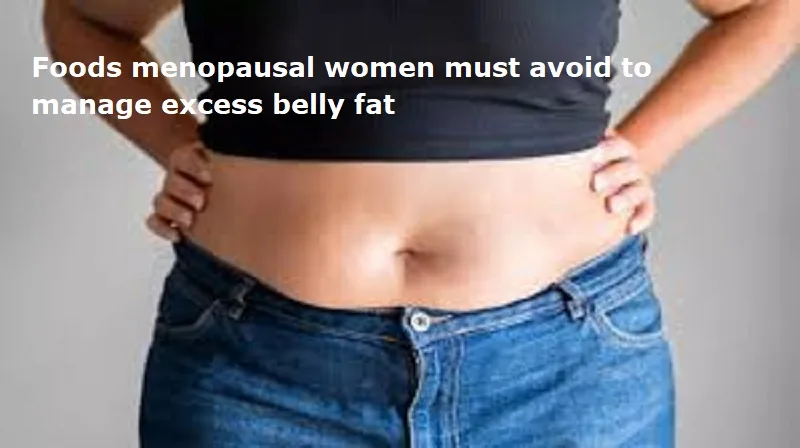
As per experts, menopause can contribute to excess belly fat. This is due to hormonal changes, particularly a drop in oestrogen levels. This hormonal imbalance alters how the body stores fat, often leading to increased fat deposition around the abdomen.
Some foods can worsen belly fat by promoting inflammation, hormonal imbalances, or water retention. These include high-sugar, high-fat, and ultra-processed foods that disrupt metabolic health, spike blood sugar, and increase fat accumulation.
Foods menopausal women must avoid to manage excess belly fat
1. Sugary foods and drinks
High-sugar items cause rapid spikes in blood sugar and insulin levels, promoting fat storage, particularly in the belly area. They also increase inflammation and disrupt hormonal balance.
2. Refined carbohydrates
These foods lack fibre and cause rapid blood sugar fluctuations, leading to increased fat accumulation. They also provide empty calories without essential nutrients.
3. Fried foods
Fried foods are calorie-dense and high in unhealthy trans fats, which promote belly fat and inflammation. They can also slow digestion, making it harder to maintain a healthy weight.
4. Alcohol
Excess alcohol intake can lead to “empty” calories and disrupt the liver’s ability to metabolise fat. It can also interfere with hormonal balance and promote fat accumulation around the waist.
5. Processed meats
Processed meats such as sausages, bacon, etc. are high in saturated fats, sodium, and preservatives, contributing to water retention, inflammation, and weight gain.
Alo read: Your evening drink may work as anti-depressant
6. High-sodium foods
High-sodium diets (fast food focused) cause water retention and bloating, making the belly appear larger. Sodium can also disrupt blood pressure regulation, which is crucial during menopause.
7. High-fat dairy products
These are calorie-dense and can contribute to weight gain when consumed excessively. Additionally, saturated fats in high-fat dairy can increase inflammation and disrupt heart health.
8. Artificial sweeteners
Artificial sweeteners in diet sodas or low-calorie snacks can confuse hunger signals, disrupt gut health, and potentially lead to overeating.
9. Energy drinks
These drinks are often loaded with sugar and caffeine, which can spike cortisol levels and promote abdominal fat accumulation.

Post Your Comments